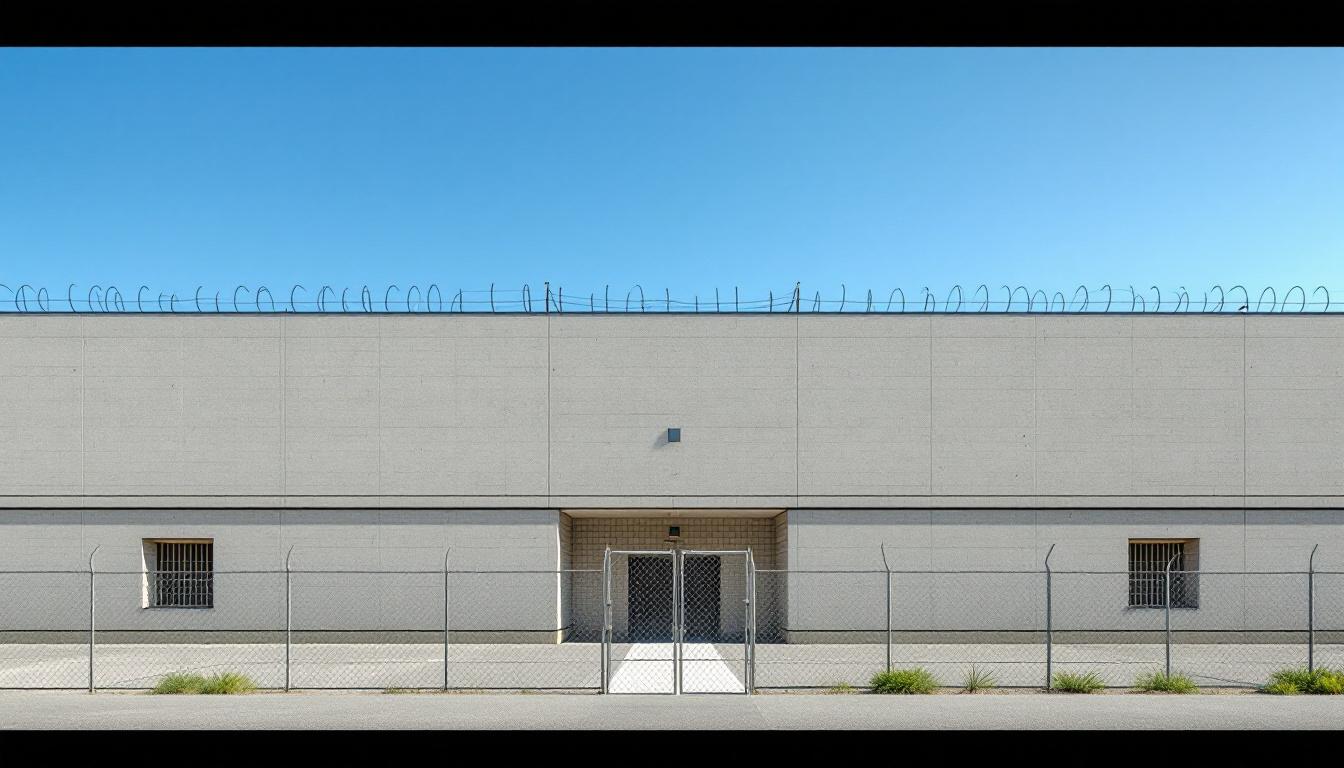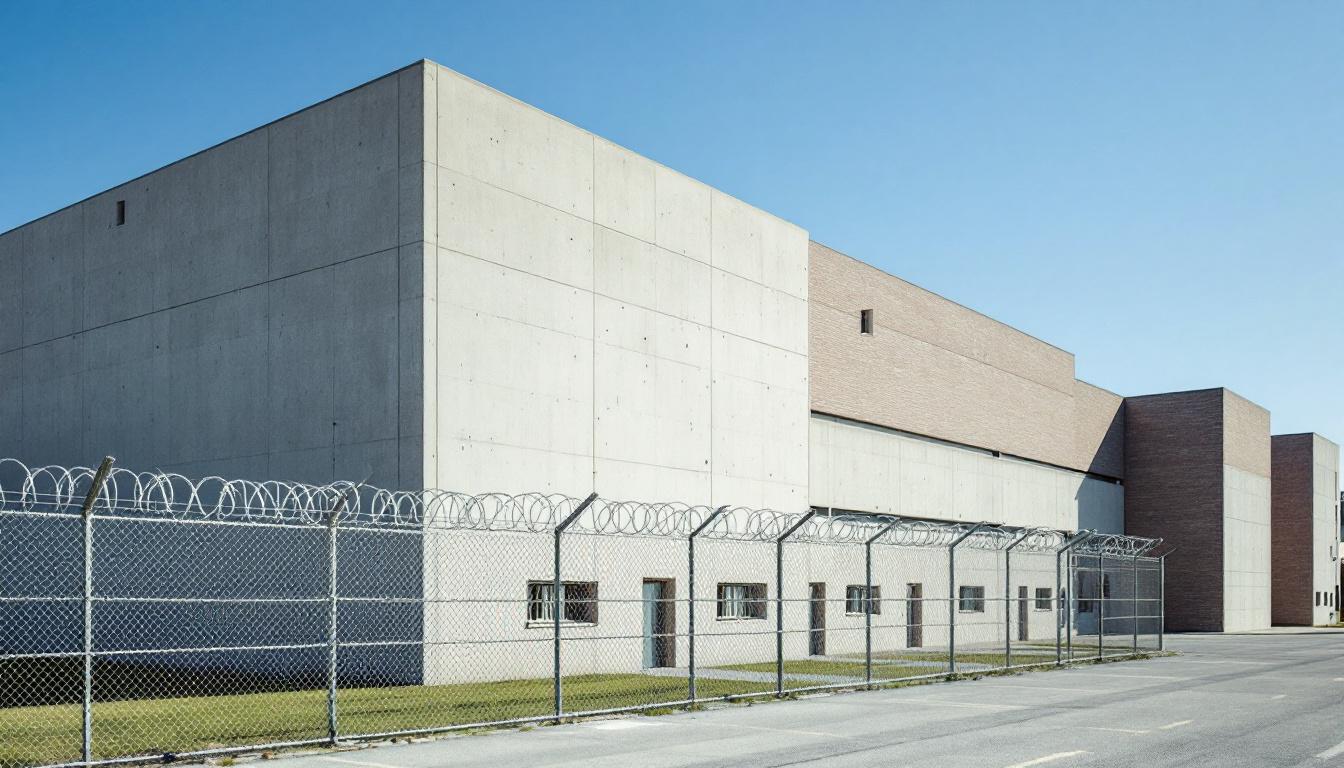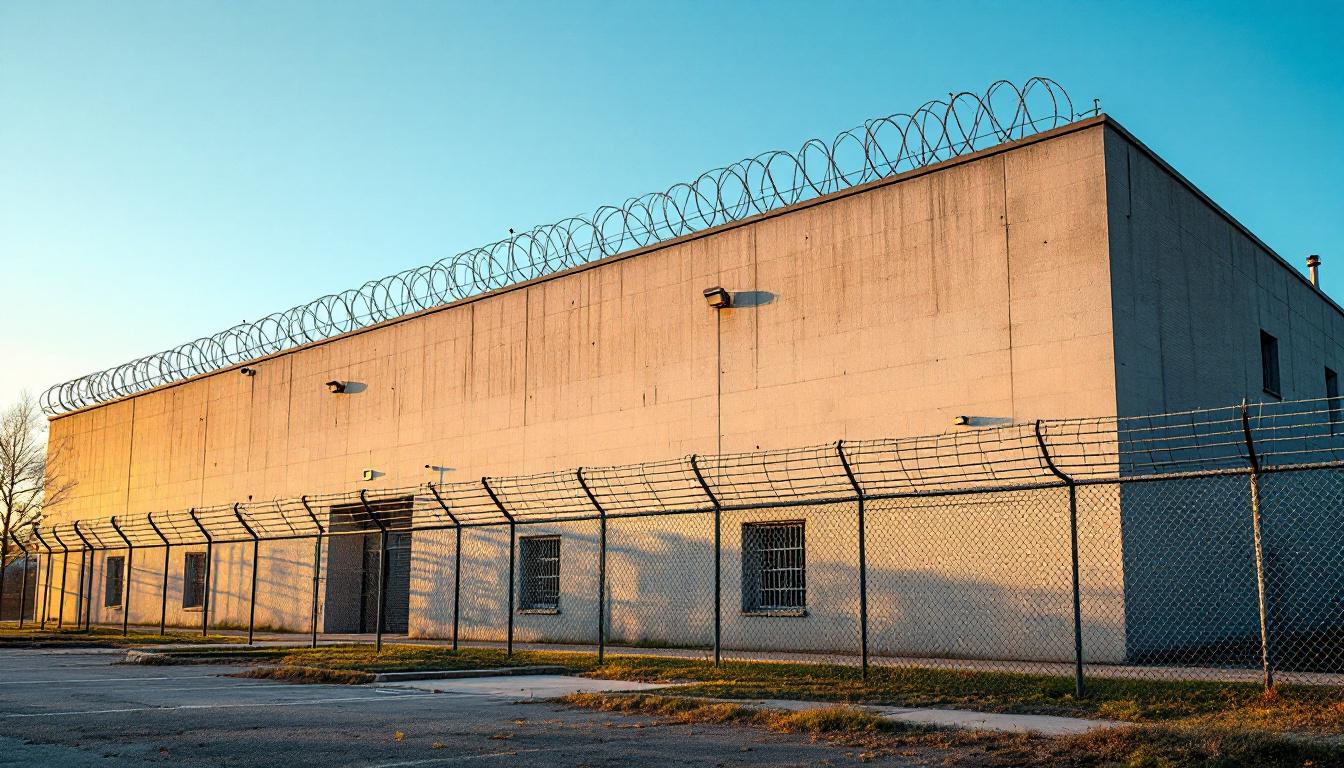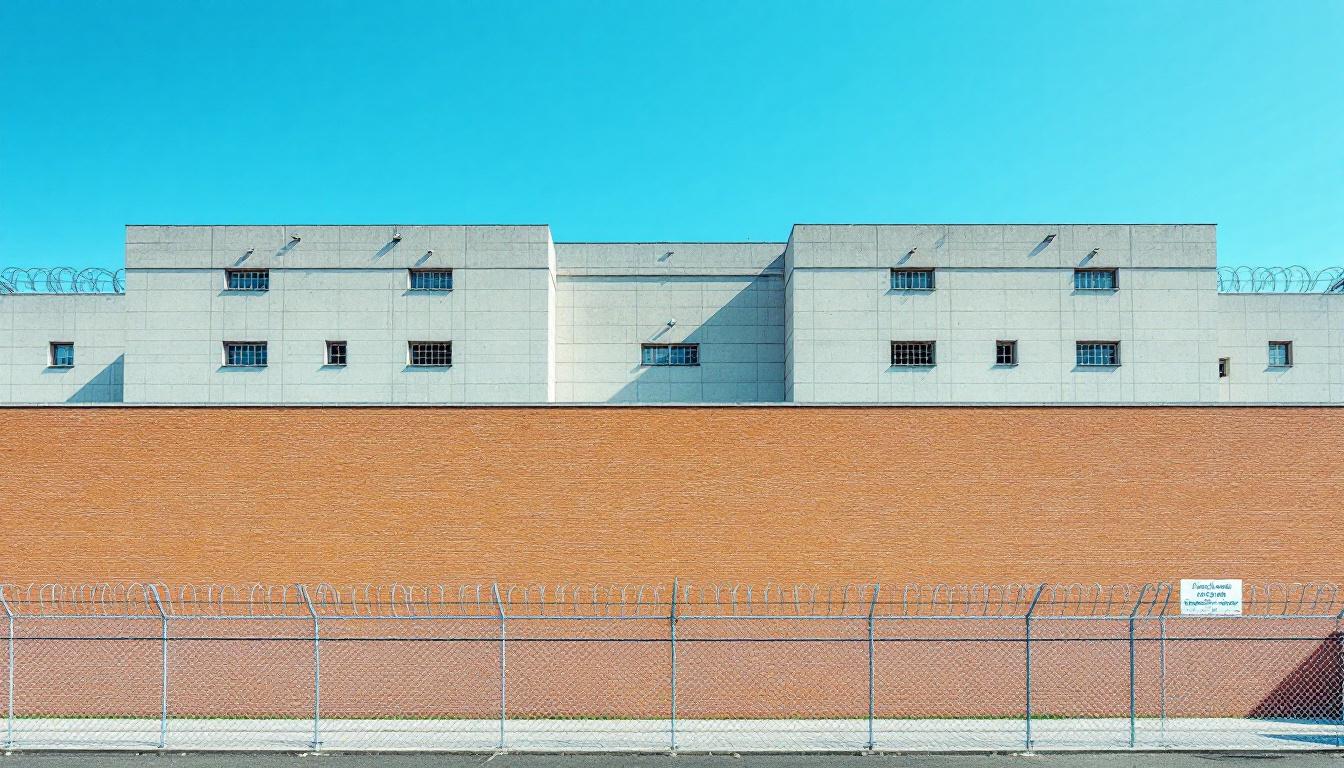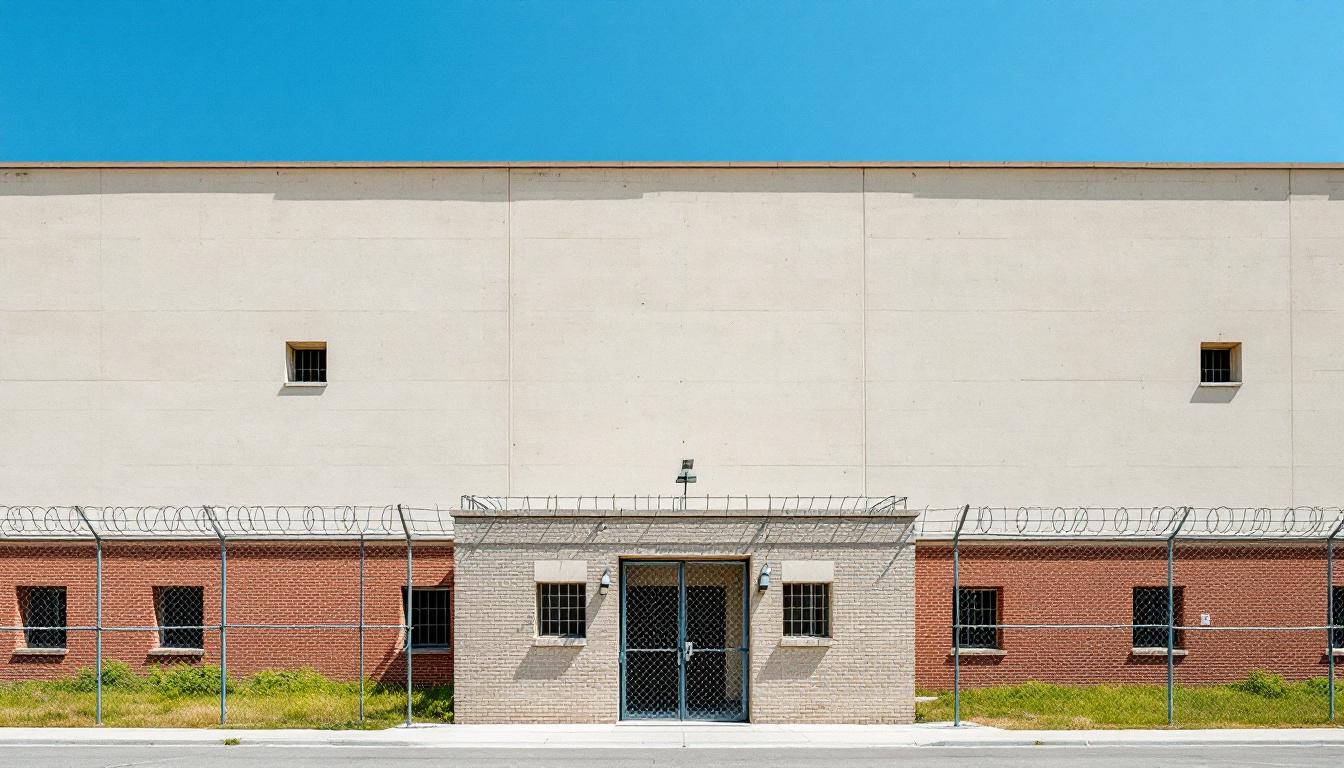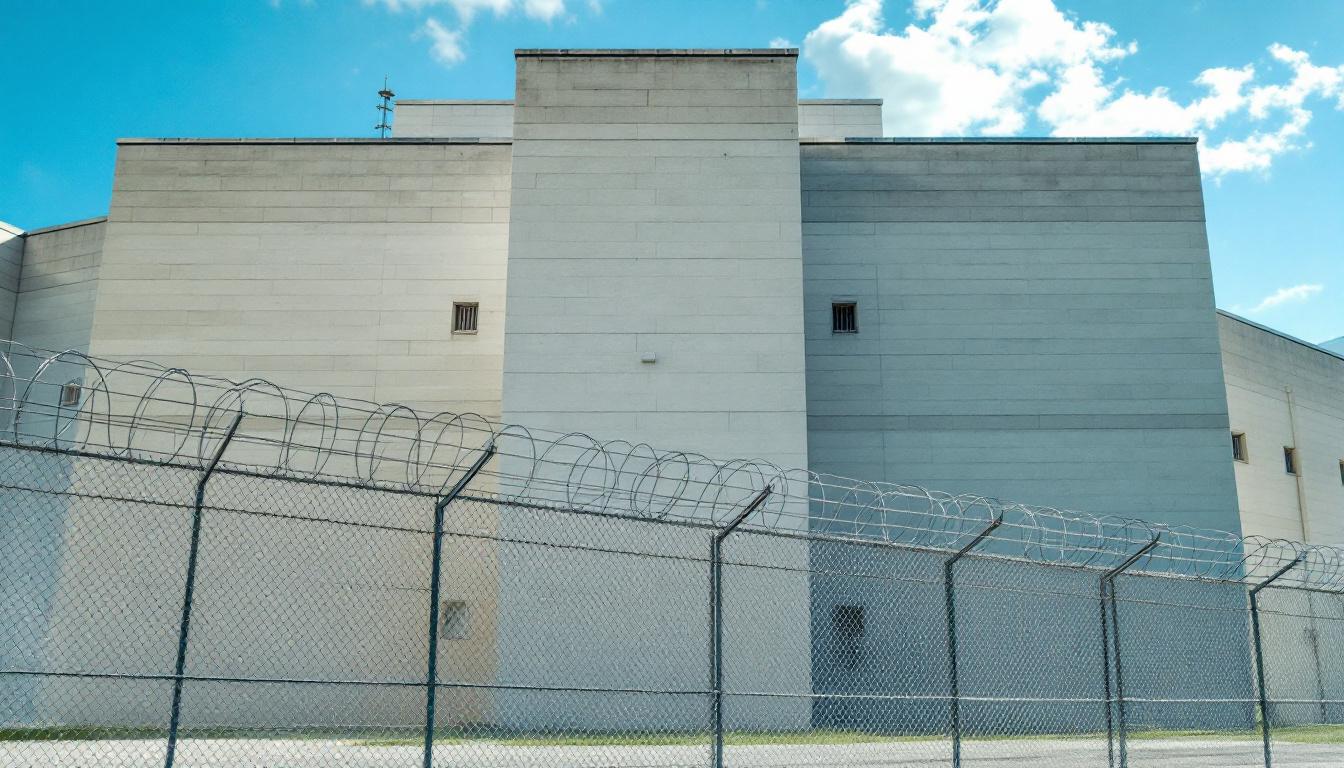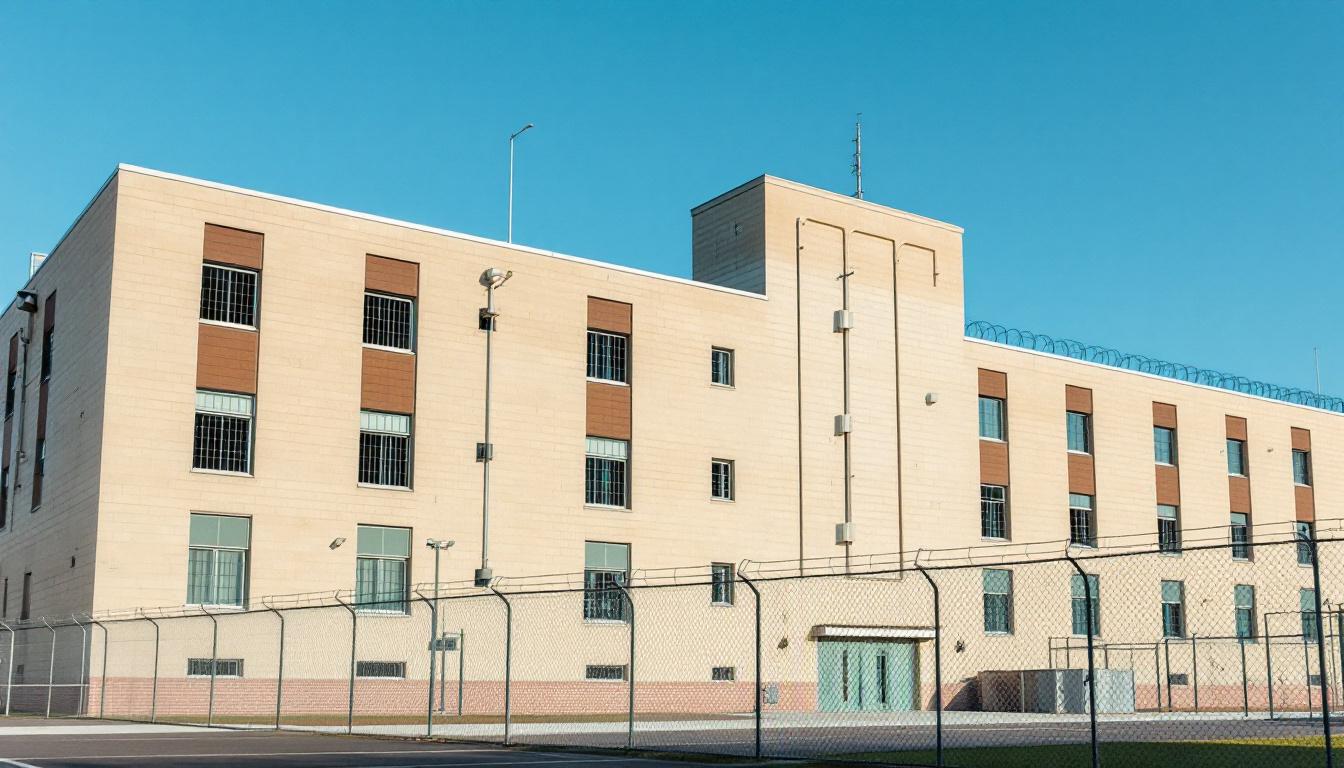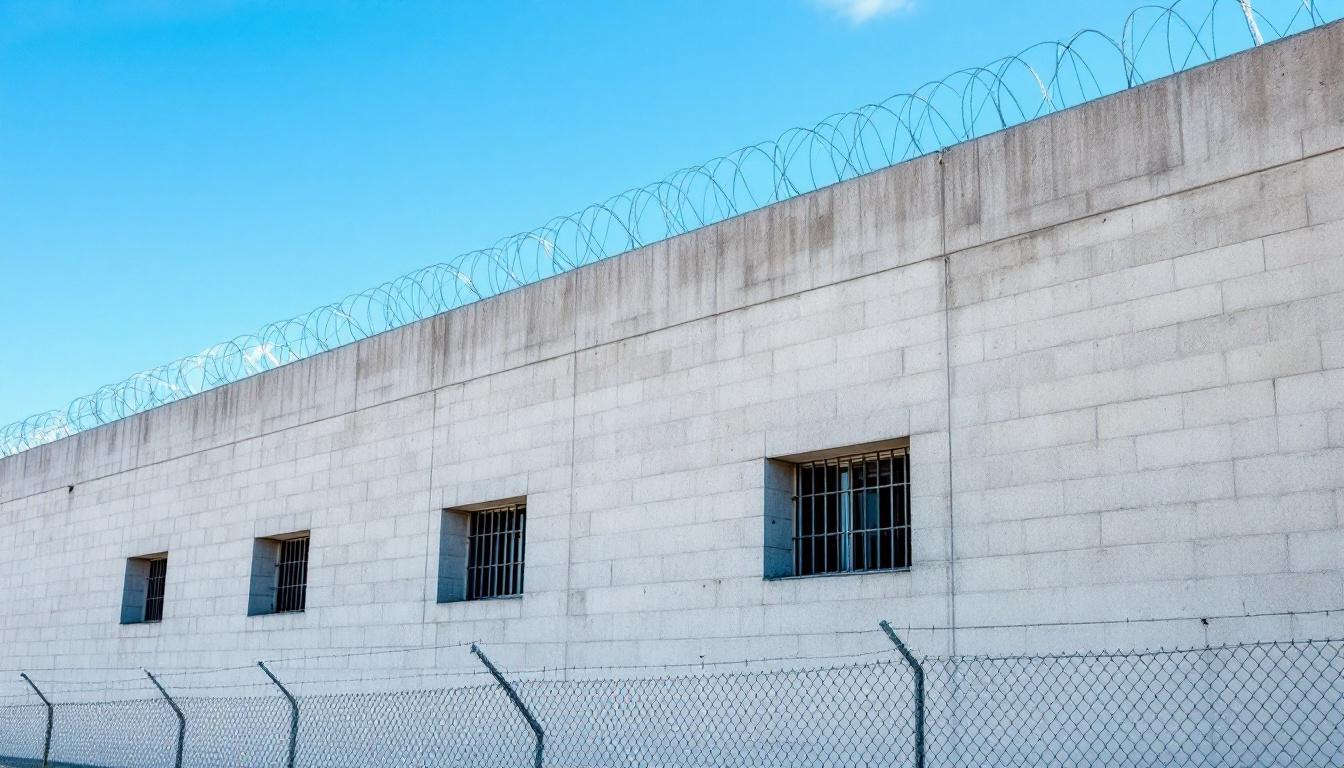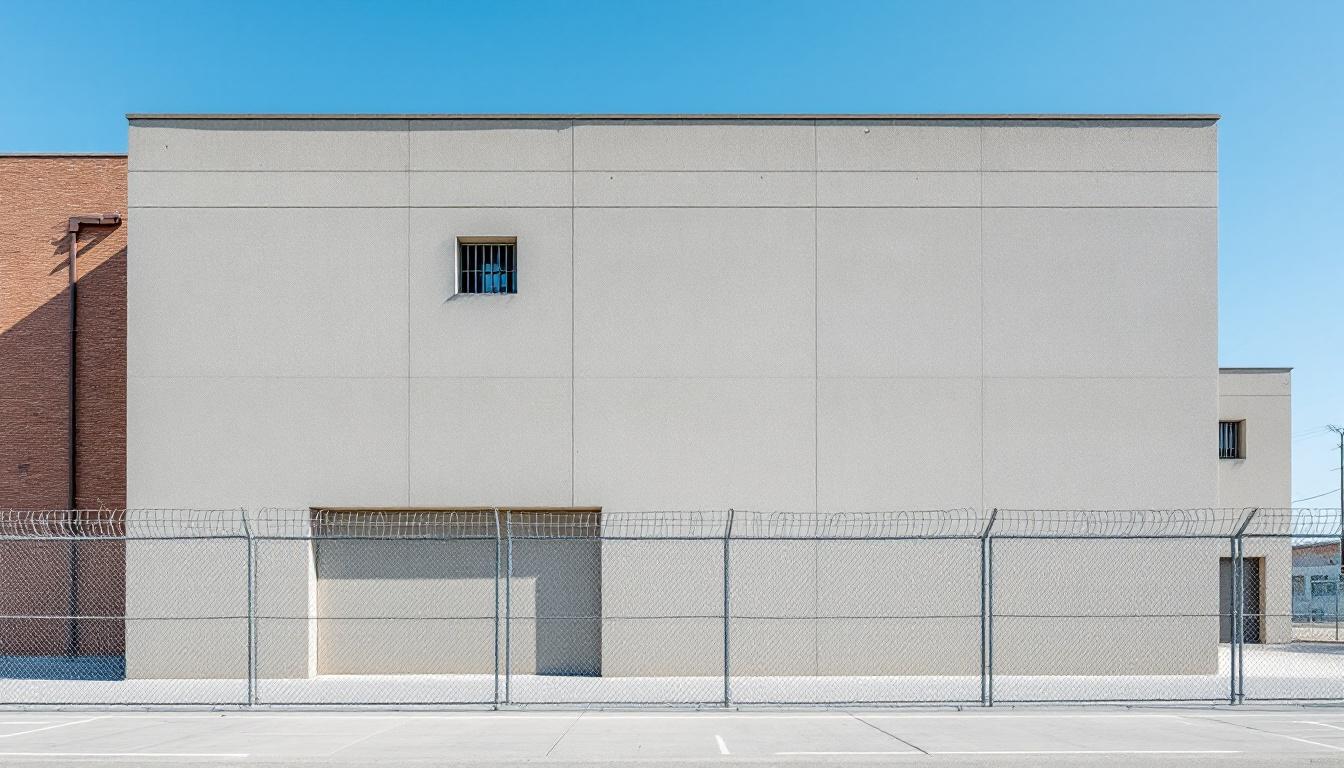
Quick Navigation
How to contact an inmate at Payette County Sheriff
This comprehensive guide will walk you through how to connect with an inmate at Payette County Sheriff. Follow the steps below to find an inmate and send letters and photos:
- Search for the inmate using our search tool below
- Create your account or log in to Penmate
- Write your message (up to 6,000 characters)
- Send instantly - inmates receive printed copies daily
Find an Inmate
Search for an inmate to start communicating today
Tip: You can search by first name, last name, or inmate ID number
To contact a person at Payette County Sheriff start by searching for the person on the official facility website. Perform a search by following these steps:
- Step 1: Enter their first name and last name into the search form and click "Search"
- Step 2: Locate their inmate record
- Step 3: Write down their Inmate ID and any housing information provided
Important! Be sure to enter the person's full name. Nicknames should not be used.
How to Send Messages to Inmates

You can use your phone or computer to send emails, letters, and photos to an inmate. Messages are sent electronically to inmate tablets or kiosks at the facility. If you would like to send a message, start by searching for an inmate at Payette County Sheriff.
Sending Photos and Postcards

A great way to send love and support to a loved one at Payette County Sheriff is to send photos and postcards. It only takes a few minutes to send photos from your phone and it makes a huge difference. You can also mail postcards with words of support and inspiration, or design your own postcard for special moments like birthdays and holidays.
Important! Be sure not to send any explicit photos or they may not be approved by the facility. You can also use a photo printing app like Penmate to make sure your photos are printed at the correct size (4x6 or 3x5) and are mailed according to the rules and regulations of Payette County Sheriff.
Frequently asked questions about Payette County Sheriff
-
How long does it take to deliver a message?
If you're sending an email message your letter is usually delivered within 24-48 hours. For messages sent via mail you should expect delivery within 3-7 days. All messages will need be approved by Payette County Sheriff.
-
How much does it cost to send a message to Payette County Sheriff?
You can send a message free using your phone or mail a message via USPS for the price of a $0.60 stamp and envelope. You can also purchase credits or e-stamps from services starting at $1.99.
-
What services can I use to contact an inmate at Payette County Sheriff?
Penmate
You can use Penmate to send letters and photos to an inmate from your phone. It's an easy way to stay in touch during your loved one's incarceration. Use the inmate locator to find an inmate's location and contact information, then you can send messages within a few minutes.
Securus messaging
Securus may be another option for communicating with an inmate at Payette County Sheriff. You can create a friends and family account and purchase credits to send messages. All messages will be reviewed and must be approved by the facility.
JPay
Some county jails and state prisons may support sending messages with JPay. You must register an account with the system, find your loved one, and purchase stamps to send messages. For some locations you can also attach photos.
Smart Jail Mail
You may also check if Smart Jail Mail is available at Payette County Sheriff. Smart Jail Mail is operated by Smart Communications and has contracted with some state and county jails. After purchasing credits, your messages and photos are sent to the facility, printed out, and then handed out to your loved one.
-
What is the mailing address of Payette County Sheriff?
Mailing address:
Payette County Sheriff
1130 3rd Ave N
Payette, ID 83661
Phone: (208) 642-6000 -
What are the visiting hours at Payette County Sheriff?
Visiting hours at Payette County Sheriff vary by housing unit and security level. Generally, visits are scheduled on weekends and holidays, with some facilities offering weekday visits. Contact the facility directly at (208) 642-6000 or check their website for the current visiting schedule. Visits typically last 30-60 minutes and must be scheduled in advance.
-
What items are prohibited when sending mail to Payette County Sheriff?
Prohibited items typically include: cash, personal checks, stamps, stickers, glitter, glue, tape, staples, paperclips, polaroid photos, musical or blank greeting cards, hardcover books, magazines with staples, and any items containing metal or electronics. Only send letters on plain white paper with blue or black ink. Photos must be printed on regular photo paper (no Polaroids). Always check with Payette County Sheriff for their specific mail policies.
-
How do I send money to an inmate at Payette County Sheriff?
You can send money to an inmate at Payette County Sheriff through several methods: 1) Online using JPay, Access Corrections, or the facility's approved vendor, 2) Money orders mailed directly to the facility with the inmate's name and ID number, 3) Kiosks located in the facility lobby, or 4) Over the phone using a credit or debit card. Fees vary by method, typically ranging from $2.95 to $11.95 per transaction.
-
Can I schedule a video visit with an inmate at Payette County Sheriff?
Many facilities now offer video visitation as an alternative to in-person visits. At Payette County Sheriff, video visits may be available through services like Penmate, Securus Video Connect, GTL, or ICSolutions. Video visits typically cost $10-20 for 20-30 minutes and must be scheduled in advance. You'll need a computer or smartphone with a camera and reliable internet connection. Contact the facility for their specific video visitation policies and approved vendors.
-
What identification do I need to visit an inmate at Payette County Sheriff?
All visitors must present valid government-issued photo identification such as a driver's license, state ID, passport, or military ID. Minors must be accompanied by a parent or legal guardian who can provide the minor's birth certificate. Some facilities require visitors to be on the inmate's approved visitation list, which may require a background check. Contact Payette County Sheriff for specific ID requirements and visitor approval procedures.
-
How can I find out an inmate's release date?
To find an inmate's release date at Payette County Sheriff, you can: 1) Use the online inmate search tool if available, 2) Call the facility's records department, 3) Contact the inmate's case manager or counselor, or 4) Have the inmate provide this information during a call or visit. For privacy reasons, some facilities only release this information to immediate family members.
Facility Overview
Official Website

About Payette County Sheriff
Nestled in the agricultural heart of southwestern Idaho, the Payette County Jail serves as a crucial component of the region's correctional infrastructure, operating within the broader framework of Idaho's commitment to balanced justice and community safety. This county-level facility typically manages pre-trial detainees and individuals serving shorter sentences, while maintaining strong connections to the surrounding rural community that characterizes much of the mountain region's landscape. The facility generally works in coordination with state correctional goals, emphasizing the importance of maintaining residents' ties to their local communities during periods of incarceration.
The jail's approach to resident services often reflects the practical needs of a smaller county facility, potentially including basic educational opportunities, substance abuse programming, and work release arrangements that may allow eligible individuals to maintain employment within Payette and surrounding areas. Such programs typically aim to support successful reintegration into the community while addressing underlying issues that may contribute to criminal behavior. The facility generally operates with an understanding that many residents will eventually return to the local community, making rehabilitation efforts particularly relevant to regional public safety goals.
Within Idaho's correctional framework, county facilities like the Payette County Jail often serve as important bridges between initial arrest and either release or transfer to state-level institutions. The facility may coordinate with local courts, probation services, and community organizations to provide a continuum of services that supports both immediate custody needs and longer-term rehabilitation objectives, reflecting the state's emphasis on evidence-based practices and community-centered approaches to corrections.
Programs & Services
Educational initiatives form the cornerstone of rehabilitation efforts, encompassing comprehensive academic programming that addresses diverse learning needs among residents. These structured learning opportunities typically include basic literacy development, high school equivalency preparation, and continuing education coursework designed to enhance cognitive skills and critical thinking abilities. Furthermore, the educational framework emphasizes individualized learning plans that accommodate varying educational backgrounds, ensuring residents can progress at appropriate paces while building foundational knowledge essential for successful community reintegration.
Vocational training initiatives complement academic programming by providing hands-on skill development in marketable trades and professions. These practical learning experiences may deliver certification opportunities in various technical fields, equipping residents with tangible qualifications that enhance employment prospects upon release. The vocational curriculum often includes comprehensive training modules that combine theoretical knowledge with applied practice, allowing participants to develop both technical competency and workplace readiness skills essential for sustainable career development.
Support services encompass a multifaceted approach to holistic rehabilitation, incorporating work programs that provide structured daily activities while developing professional habits and responsibilities. Painting and decorating initiatives offer creative outlets that simultaneously teach valuable trade skills, while wellness programs typically address physical health, mental well-being, and stress management techniques. Additionally, animal care programs may provide therapeutic benefits through structured interaction with animals, fostering empathy, responsibility, and emotional regulation skills that contribute to overall behavioral improvement and personal growth among participating residents.
Daily Life & Visitation
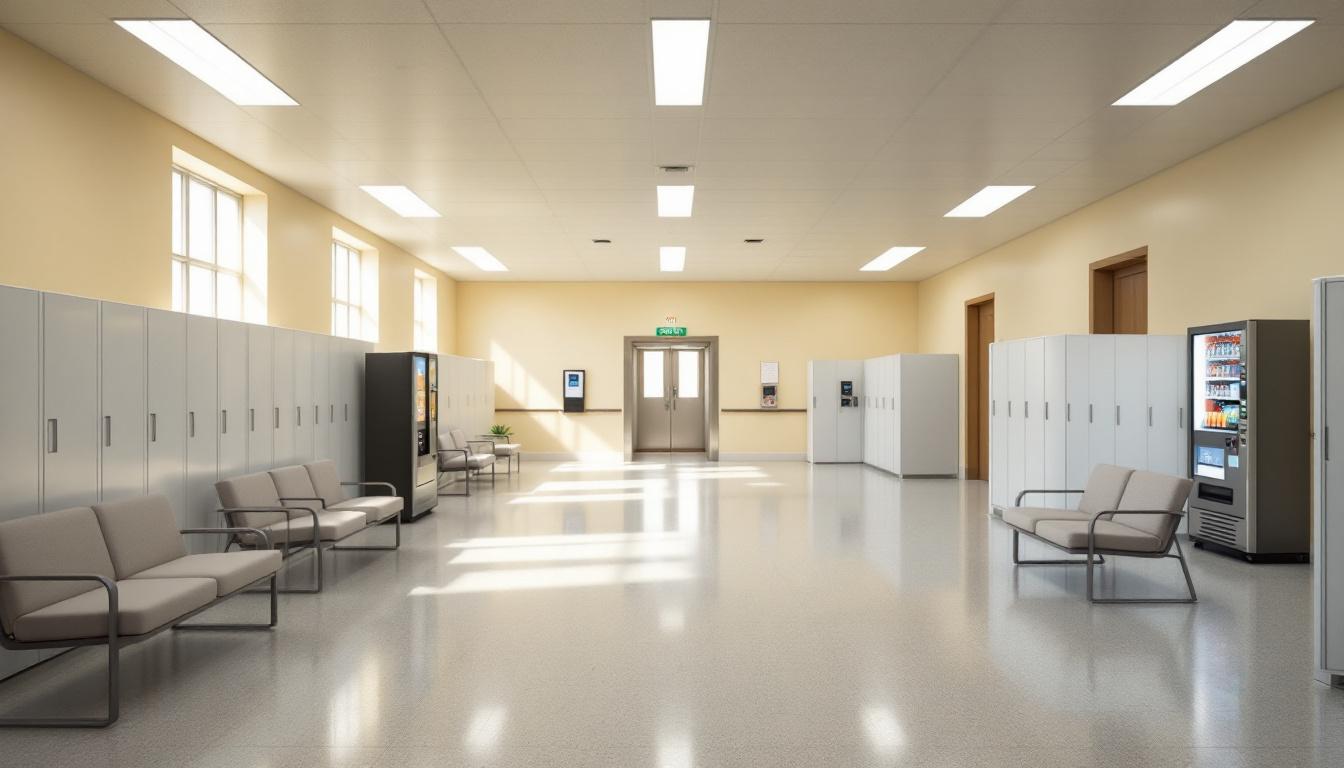
Structured routines now anchor each day with predictable rhythms that residents can rely upon, creating a framework where wake-up calls, meal times, and scheduled activities deliver consistency in an otherwise uncertain environment. The carefully orchestrated schedule typically begins in the early morning hours and continues through evening lockdown, with residents regularly participating in counts, work assignments, and designated periods for personal hygiene and recreation. This systematic approach helps establish normalcy and provides residents with clear expectations about how their days will unfold.
Living accommodations generally consist of shared housing units where residents are assigned bunks and provided with basic necessities including bedding, personal hygiene items, and limited storage space for approved personal property. Meals are typically served in designated dining areas at scheduled times throughout the day, with residents following established protocols for movement between their housing units and common areas. Furthermore, the facility usually maintains a commissary system that allows residents to purchase additional food items, hygiene products, and other approved goods using funds from their accounts, providing some degree of personal choice within the structured environment.
Although movement is carefully monitored and supervised, residents may have opportunities to participate in recreational activities, educational programming, and work assignments that help break up the routine while contributing to facility operations. Visitation policies typically allow for scheduled visits from family members and approved contacts, while telephone access and mail correspondence provide additional means of maintaining connections with loved ones on the outside. The combination of structured daily activities, work responsibilities, and family communication opportunities generally helps residents maintain stability and purpose during their time at the facility.
Ready to Connect?
Start communicating with your loved one today
Search for an Inmate


